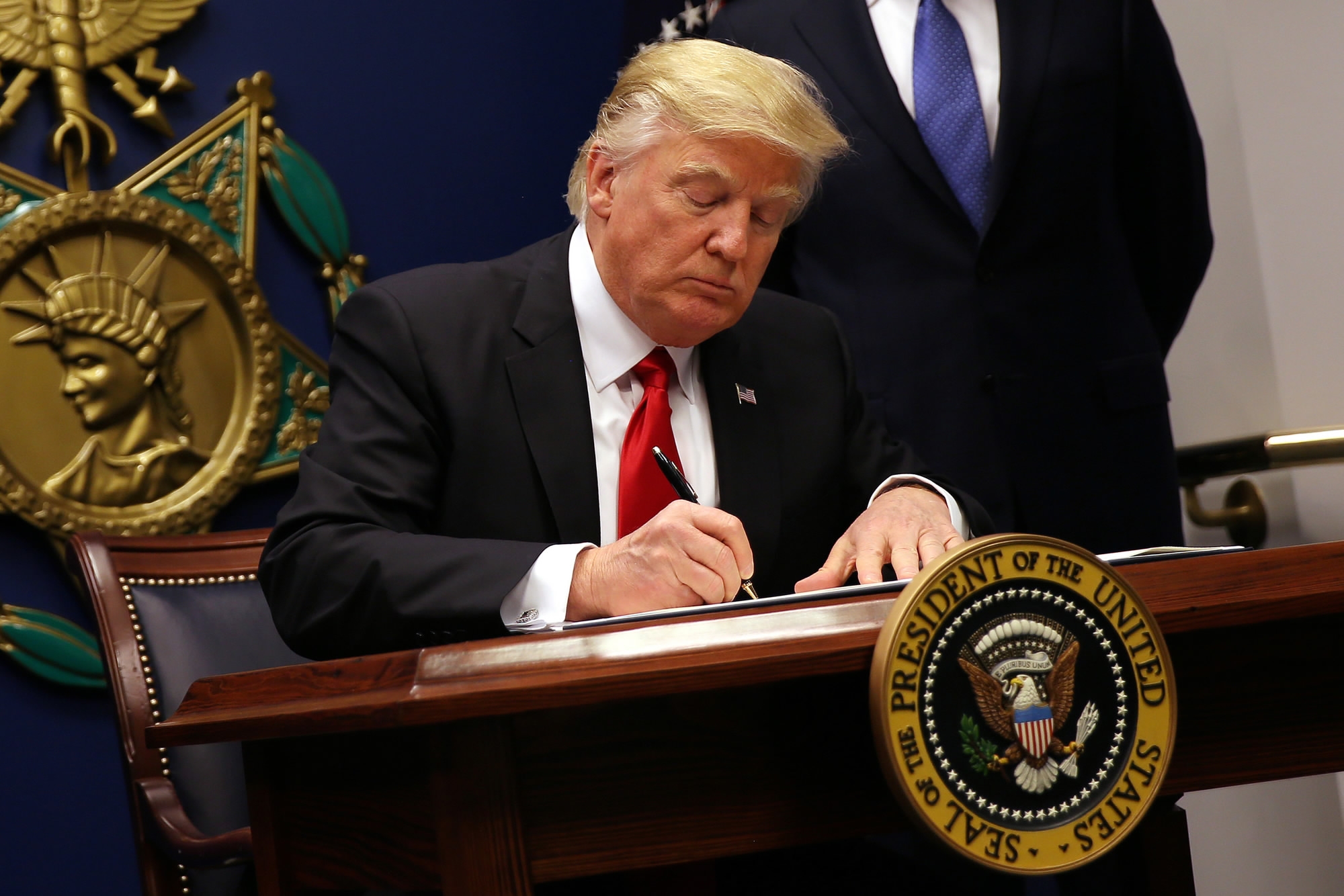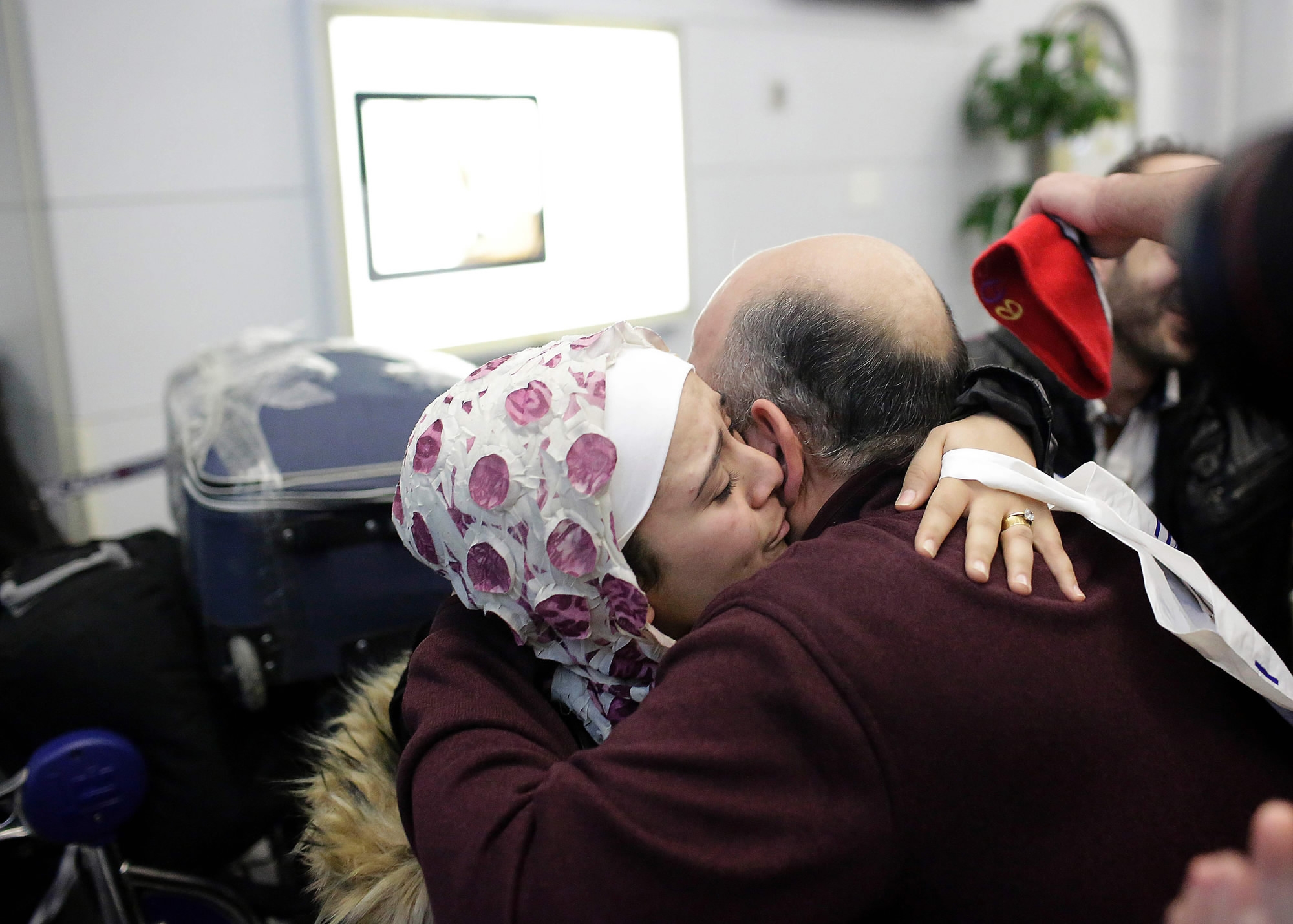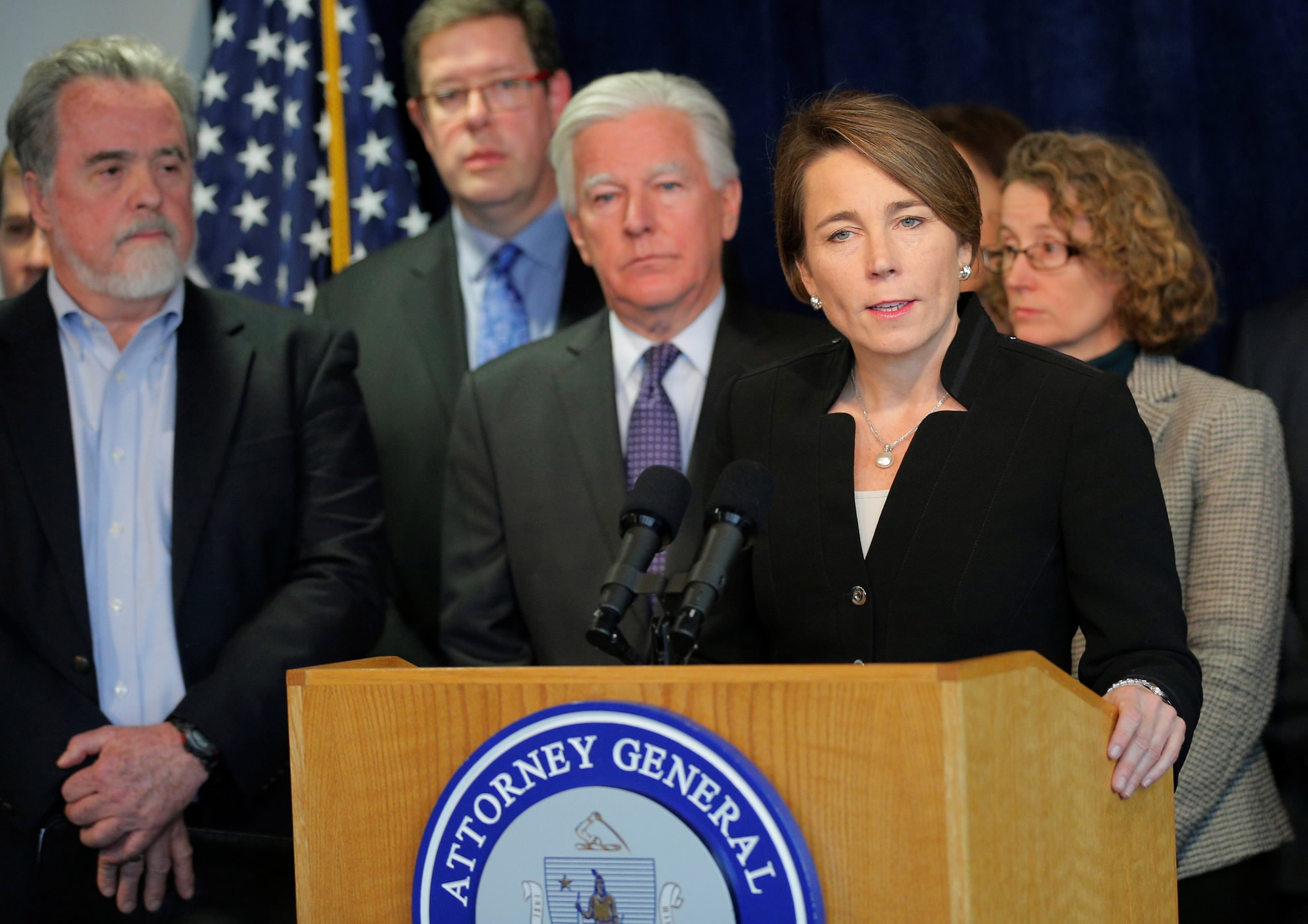Guest commentary by Hichem Karoui
Unintentionally, US President Donald Trump’s Executive Order (EO) 13769 is making business hard for US companies.
For Coca-Cola CEO Muhtar Kent, Trump's rhetoric will have a negative impact on trade. Trump's ban is "counter to our core beliefs," Kent said to The Atlanta Journal-Constitution this week.
Kent expressed worry following Trump's promises to reverse US trade pacts with Mexico and other countries, and to tackle what the president called China's unfair trade practices. Both Mexico and China were strong markets for Coca-Cola in the fourth quarter.
He is not alone.

US President Donald Trump signs an executive order to impose tighter vetting of travelers entering the United States, at the Pentagon in Washington, January 27, 2017. /CFP Photo
During a hearing of the House Committee on Homeland Security on Tuesday, attended by General John Kelly, the new secretary of Homeland Security, Democratic congressmen criticized the "Muslim ban." Congressman Bennie Thompson argued that "President Trump changed this nation's standing, both at home and abroad. Democratic members have many questions about President Trump's unconstitutional Muslim ban and have signed a letter to (Committee) Chairman (Michael) McCaul." Republican McCaul responded however: "This is not a Muslim ban, and even the suggestion that it is could alienate our allies and embolden our adversaries."
The January 27 EO 13769 is still blocked, after a court of appeals denied the Trump administration’s emergency motion.
How will this ban affect Chinese nationals who have business in Sudan, Iraq, or Iran for example? Some of them may indeed need to travel to the USA.
At first sight, the ban is not directed at Chinese people. It concerns citizens of seven majority Muslim countries and refugees. Would Chinese Muslims (like other nationals), have difficulties getting a visa to the USA, if they are based in one of the seven banned countries? This has not been proven.

Syrian refugee Baraa Haj Khalaf, (L), hugs her father Khaled Haj Khalaf as she arrives at O'Hare International Airport with her husband Abdulmajeed on February 7, 2017 in Chicago, Illinois. /CFP Photo
Yet, the order suspends the Visa Interview Waiver Program, which allowed frequent visitors to the US to skip an in-person interview at a US embassy and consulate. Now, those interviews are required.
At the same time, those who perceive the EO as directed against Muslims point to Sections 3(g) and 5(e). The first allows the secretaries of State and of Homeland Security to make case-by-case exceptions to these provisions “when in the national interest.” The second states that situations that would be in the national interest include “when the person is a religious minority in his country of nationality facing religious persecution.” This means the EO excludes Christians and other religious minorities in the seven targeted countries from the ban, but not persecuted Muslims!
The EO has caused collateral damage in the business and academic communities. As The Boston Globe noted on Friday, "There's a global war for talent to sustain the modern economies we have built. Attracting the best and brightest foreign students is a way to help fill the pipeline of skilled labor this country needs… Foreign students are a growing source of revenue for academic institutions."
Eight Massachusetts colleges and universities -- including Harvard, MIT, and Northeastern – have now started fighting the Trump EO in court.

Massachusetts Attorney General Maura Healey (2nd R) announces the state will join a lawsuit, along with plaintiffs Oxfam President Ray Offenheiser (L) and University of Massachusetts President Martin Meehan (3rd L), challenging President Donald Trump's executive order travel ban in Boston, Massachusetts, January 31, 2017. /CFP Photo
Trump's protectionist trade and immigration policies are not making Silicon Valley happy either.
Big US corporations – including Google, Apple, Ford, Goldman Sachs and Starbucks – have disavowed the ban. Not only do they retain Muslim high-tech experts and engineers, but they also deal with millions of Muslim clients. They worry about restrictions on their employees and their families, not to mention barriers to bringing Muslim talents to the US. They also worry about consequences, like calls to boycott, etc...
Some observers already hint that while the Muslim ban does not affect Chinese nationals directly, it may benefit China: students and talents would consider going to China rather than the USA.
(Dr. Hichem Karoui is Non-Resident Senior Fellow at the Center of China and Globalization (CCG), Beijing, and a diplomatic advisor. The article reflects the author's opinion, not necessarily the view of CGTN.)









